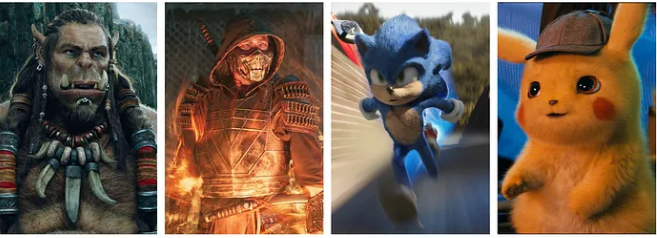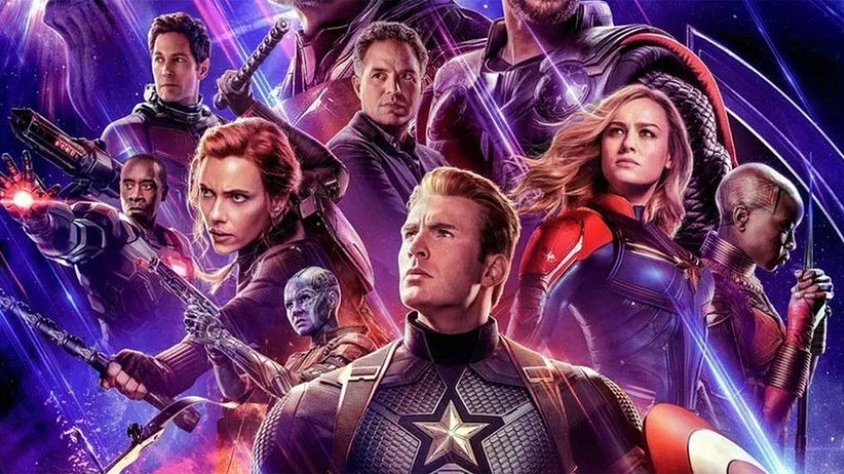

Gaming and cinema, two forms of entertainment that have captivated audiences for decades, often share a symbiotic relationship. The concept of adapting video game intellectual property (IP) into movies has become increasingly popular, but the journey has been filled with successes, failures, and valuable lessons. In this article, we explore the fascinating history of gaming IP being made into movies, from the early attempts to the current era of blockbuster adaptations.
The concept of adapting video games into movies dates back to the 1990s when filmmakers recognized the potential of capitalizing on the immense popularity of gaming franchises. However, early attempts, such as the Super Mario Bros. (1993) and Street Fighter (1994) movies, were met with mixed reviews and commercial disappointment. The challenge lay in translating the interactive nature of games into a passive cinematic experience, often resulting in convoluted plots and creative deviations that left fans dissatisfied.

Despite early setbacks, filmmakers continued to explore the possibilities of gaming adaptations, and the industry slowly began to evolve. In 2001, Lara Croft: Tomb Raider introduced Angelina Jolie as the iconic archaeologist in an action-packed adventure that found moderate success at the box office. This paved the way for more successful adaptations, including Resident Evil (2002) and Silent Hill (2006), which managed to capture the essence of the games while attracting both gamers and mainstream audiences.

The success of comic book adaptations in the early 2000s significantly influenced the gaming-to-movie landscape. Filmmakers began to adopt a more faithful approach, respecting the source material and understanding the importance of appealing to the passionate gaming fanbase. Movies like the critically acclaimed Warcraft (2016), based on the popular MMORPG, and the visually stunning Assassin’s Creed (2016) showcased a growing understanding of the medium, bridging the gap between games and movies.
Advancements in technology have played a pivotal role in creating more immersive and visually striking gaming adaptations. Movies like Sonic the Hedgehog (2020) successfully brought the beloved blue speedster to life, addressing the concerns of fans by redesigning the character after an initial backlash. Furthermore, the success of the animated film Detective Pikachu (2019) showcased the potential of expanded narratives, capturing the hearts of both gamers and non-gamers alike.
Inspired by the success of Marvel’s Cinematic Universe, studios have started exploring the concept of interconnected gaming adaptations. Films like Mortal Kombat (2021) and the upcoming Borderlands (2023) aim to build shared universes, capitalizing on the extensive lore and characters established in the games. This approach opens up exciting possibilities for cross-medium storytelling, potentially deepening the engagement between gamers and the movie industry.

The history of gaming IP being made into movies is an ever-evolving journey. From the early struggles to find the right formula to the current era of increasingly faithful adaptations, the relationship between gaming and cinema continues to evolve and mature. As technology advances and storytellers gain a better understanding of gaming narratives, the future looks promising for both mediums. The passion of gamers combined with the creative vision of filmmakers is sure to result in more thrilling and immersive experiences on the silver screen.
While challenges persist, the potential for successful gaming adaptations into movies remains high. As audiences eagerly anticipate upcoming projects like Uncharted, The Last of Us, and Halo, the convergence of gaming and cinema promises a future filled with awe-inspiring adventures and a deeper appreciation for the rich storytelling found in both mediums.
UFORIKA is an MMO gaming ecosystem on a mission to liberate limitless creativity for the virtual world. Providing accessible technology to engage every user, journey into the heart of a world of play, creation and community with a focus on transmedia IP across gaming, technology & digital experiences.
For contact enquiries, please visit: